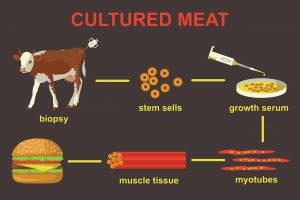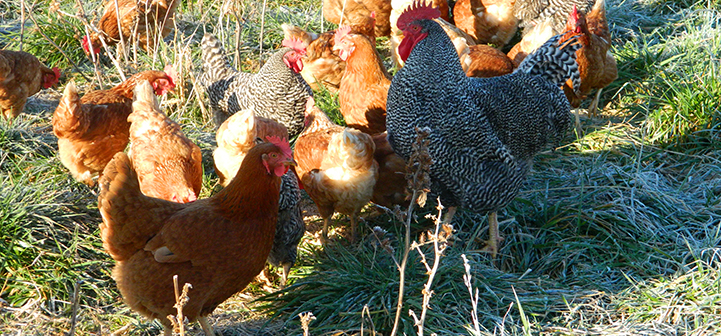The United States Department of Agriculture’s (USDA) Food Safety and Inspection Service (FSIS) and the Food and Drug Administration (FDA), which is a unit of the U.S. Department of Health and Human Services, have come to an agreement on how the growing cell-based meat industry will be regulated in the United States.
FDA will oversee cell collection, cell banks, and cell growth and differentiation. The oversight will transfer from FDA to FSIS during the cell harvest stage. FSIS will oversee the production and labeling of human food products that are made from the cells of livestock and poultry. The shared oversight is to ensure that food products derived from cell-cultures are produced safely and are accurately labeled. You can read the whole agreement, and all it’s legal jargon, here. The Meat Institute, National Turkey Federation, and the Good Food Institute have indicated their support for the joint oversight, although the National Cattlemen’s Beef Association reiterated their position that the term ‘meat’ should not be used. Specifically, their position is that the term ‘beef’ should refer only to “products derived exclusively from the flesh of a bovine animal harvested in the traditional manner.” Under this joint agreement between FSIS and FDA, a USDA meat inspection stamp will be used on cell-based products, which they oppose. They feel a new stamp should be created specifically for cell-based products using a different format and color of ink.
As shown in the graphic below, cultured ‘meat’ is produced from stem cells derived from the animal, the cow in this case, are placed in growth serum to produce myotube fibers of meat. these are then combined to form muscle tissue. The finished product can then be used in meat products, such as hamburgers.


